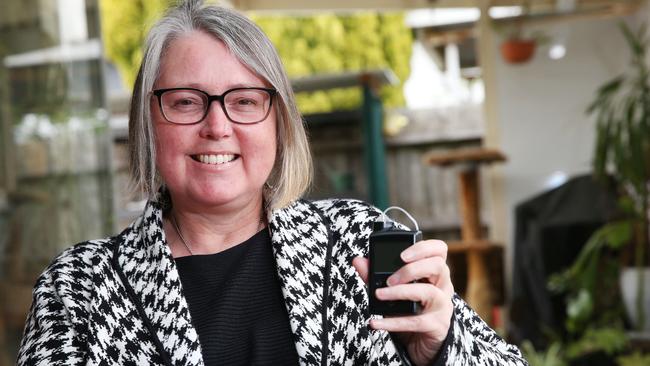Push for better understanding of diabetes
The diabetic community is fighting for people to gain a better understanding of the condition.

Geelong
Don't miss out on the headlines from Geelong. Followed categories will be added to My News.
Linda Hobbs did not really understand diabetes until she found out she had the condition.
The Hamlyn Heights 50-year-old was diagnosed with type 1 diabetes in 2015.
Prior to being diagnosed, Associate Professor Hobbs was losing weight and exhausted.
Prof Hobbs, who works at Deakin University, also had been diagnosed with Addison’s disease, a condition where the adrenal glands are unable to produce enough hormones, and Hashimoto’s disease, an auto-immune disease that affects the thyroid gland.
She said diabetes was a constant struggle.
“I can’t really talk about diabetes outside of the various comorbidities I have,” she said.
“The challenge of diabetes is obviously the constant monitoring and tracking of our sugar levels.
“Nothing every goes back to the same — there’s monitoring you have to do, if I go for a walk in the morning I have to take my jelly beans.”
She said it was lucky there had been technology advances to assist.
“There’s a lot of misunderstanding around how we need to treat the problem,” she said.
“Misconceptions are we eat too much sugar, that we’re fat and overweight, we can manage it with diet.”
She said she was in a very fortunate position with private health insurance that could help, and that being in a type 1 diabetes support group had been valuable.
A federal parliamentary inquiry is probing the impacts of diabetes on Australia’s health system and economy, and advances in prevention and management.
Geelong-based charity the Type 1 Foundation said it conducted a survey that found more than 97 per cent of respondents identified there needed to be a clear differentiation between type 1 and type 2 diabetes, with 86 per cent of people stating services and funding programs should be separated.
When asked what financial, emotional, mental and physical effect type 1 diabetes had on their lives, more than 86 per cent of respondents across all age groups said it had intense or considerable impact on their daily life, the foundation’s submission said.
The impact of type 1 diabetes on the emotional and mental health of those living with it and/or their parents and carers was highlighted as one of the largest issues across respondents.
There are no lifestyle changes people can make to lower risk of type 1 diabetes, but risk of type 2 diabetes can be reduced through healthy diet and exercise.
Deakin University’s Institute for Health Transformation called for comprehensive legislation to prevent children’s exposure to unhealthy food marketing, including a ban on all unhealthy food marketing on broadcast media between 6am and 9.30pm; a total ban on all marketing of unhealthy foods through digital media; and a total ban on all targeted marketing to children.
“A large body of evidence shows that children’s exposure to unhealthy food marketing is high and that it influences their preferences, consumption and energy intake, leading to lifetime risks of obesity and diabetes,” the submission said.
It also recommended a “health levy” on manufacturers of sugar sweetened beverages.
More Coverage
Originally published as Push for better understanding of diabetes





